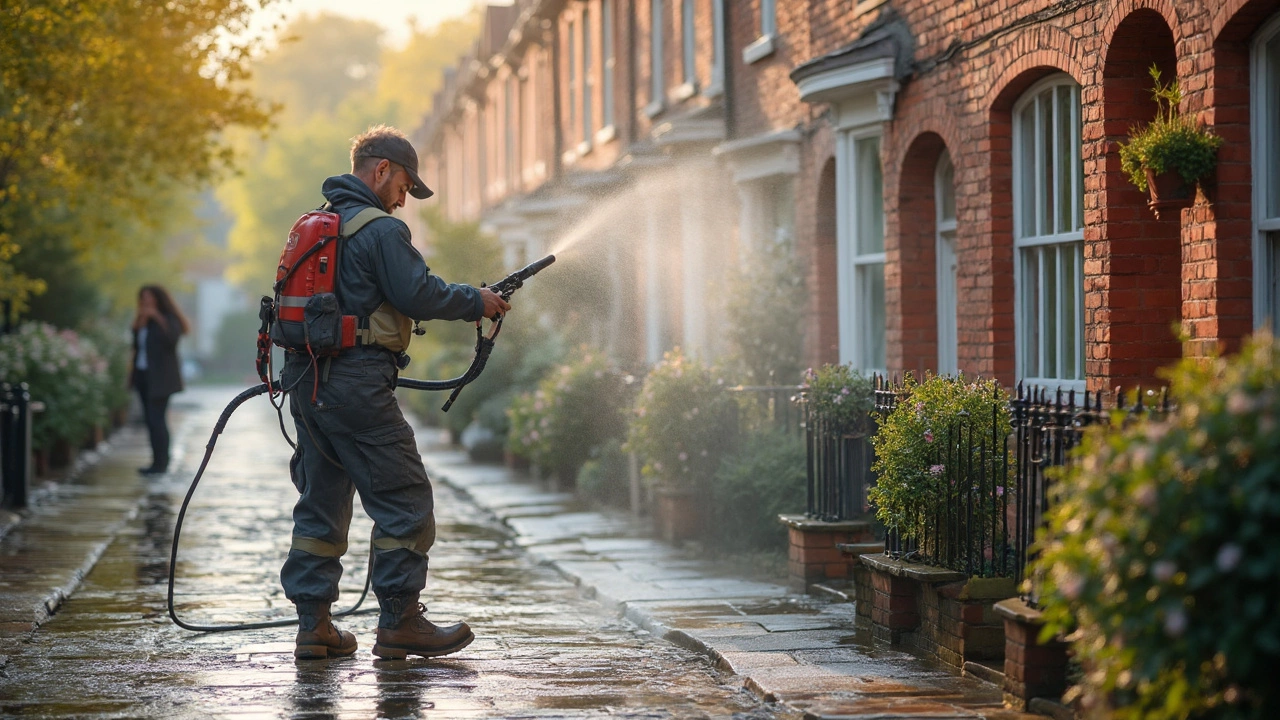Business Cleaning Services: What You Need to Know
When you think about a cleaning business, the first thing that comes to mind is probably a mop and bucket. In reality, it’s a mix of pricing, marketing, and reliable service that keeps the cash flowing. Below you’ll find the basics that help you price your work right and the steps to start a cleaning or pressure‑washing venture.
How Much Does a Cleaning Service Cost?
Most homeowners expect a clear quote before they book. In the UK, a standard house clean usually runs between £15 and £25 per hour per cleaner. Deep cleaning or after‑builders jobs can push the rate up to £30‑£45 per hour because of the extra time and equipment needed.
Window cleaning follows a similar pattern. For a typical two‑storey house, customers pay around £100‑£150 for a full exterior and interior job. Prices rise if you need special solutions for hard water stains or high‑rise windows.
If you add pressure washing to your menu, expect a base charge of £80‑£120 for a single‑storey house. The price can climb depending on the size of the property, the amount of mold, and whether you need environmentally‑safe detergents.
Clients also appreciate transparent add‑ons. List extra services like oven cleaning (£30‑£45), carpet steam cleaning (£40‑£70 per room), or upholstery care as separate line items. This avoids surprise fees and makes it easier for customers to choose exactly what they need.
Starting Your Own Cleaning Business
First step: decide what niche you want. General home cleaning, commercial office cleaning, and pressure washing each have different equipment needs and client expectations. Pick one that matches your budget and skills.
Next, gather the right tools. A good vacuum, microfiber cloths, and an eco‑friendly all‑purpose cleaner cover most home jobs. For pressure washing, invest in a reliable pump with adjustable pressure settings and a water‑safe detergent.
Licensing and insurance are non‑negotiable. A public liability policy protects you if you accidentally damage a client’s property. Check local council rules for any permits required for commercial cleaning or waste disposal.
Pricing starts with a simple cost‑plus model. Add your labor cost, materials, travel time, and a profit margin of 20‑30 %. Use a spreadsheet to track each job so you can adjust rates as you gain experience.
Marketing doesn’t have to be pricey. Create a basic website with your services, rates, and a few before‑and‑after photos. Encourage happy customers to leave reviews on Google and social media – those reviews are often the first thing new clients check.
Don’t forget to set clear expectations with each client. A short checklist that outlines what will be cleaned, how long it will take, and any prep the homeowner needs to do helps avoid misunderstandings.
Finally, keep learning. Follow industry blogs, watch tutorial videos, and join local business groups. Staying up‑to‑date on new cleaning products and equipment can give you an edge over competitors.
Running a cleaning business is a mix of hard work and smart planning. Get your pricing right, stay transparent with customers, and invest in the right tools, and you’ll see steady growth. Ready to start? Grab a mop, a plan, and get moving.

Do Pressure Washers Make a Lot of Money?
Pressure washing can be a profitable business due to high demand in property maintenance. Services range from cleaning sidewalks to cleaning entire homes, making it versatile. Costs can vary based on location, equipment, and competition, but the potential for substantial income exists with efficient operation. Successful businesses focus on customer satisfaction, leveraging seasonal trends to maximize profits. Understanding the market and setting competitive prices enhances profitability.
Read More